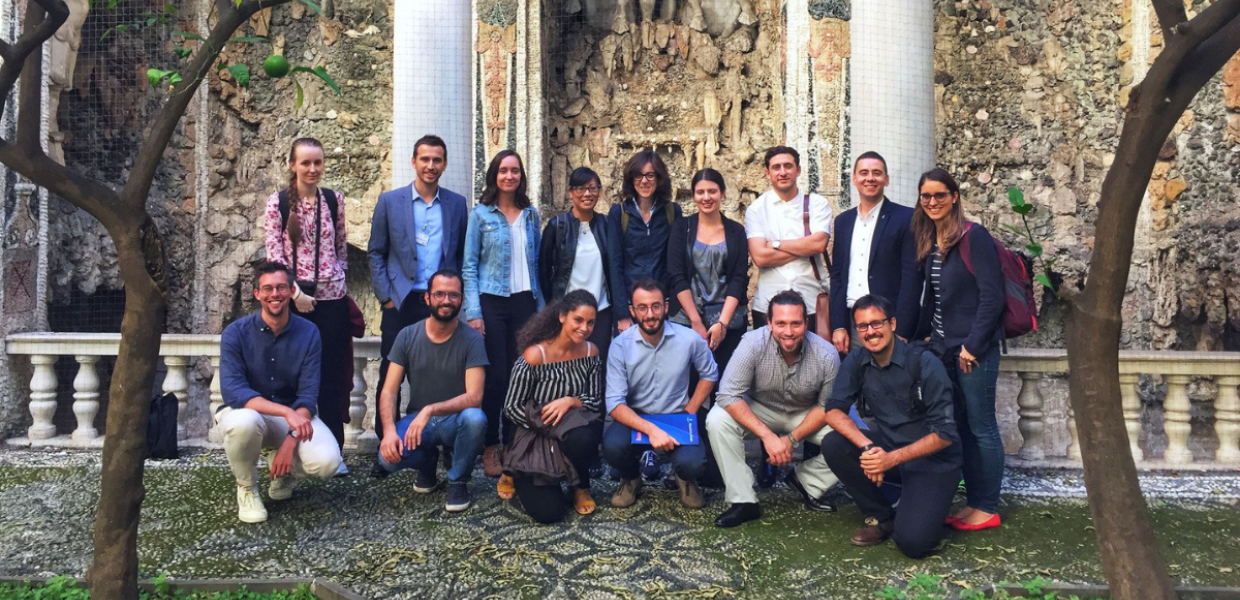The Europeana New Professionals Task Force is working to better support young, new and emerging professionals as they enter and navigate the field of cultural heritage. The Task Force team have been identifying challenges facing new professionals and aim to deliver recommendations for the implementation of a new professionals programme in January 2021. Throughout 2020, the Task Force has been progressing its work and collaborating with external individuals, organisations and initiatives to feed into sustainable recommendations for the mutual growth and development of both new and experienced professionals within the Europeana Network Association. One of these collaborations has been with the European Students’ Association for Cultural Heritage (ESACH), which Task Force Members Marius and Carlota lead.
ESACH is a youth-led network of students and young professionals within cultural heritage. Its driving reflections are: how do we engage with the past elements of our culture(s)? How and why do we protect culture as an element of a contemporary cultural system? What do younger generations consider as heritage, and how do they envision to safeguard and experience it? In 2020, more than 120 ESACH members make cultural heritage visible, from the local level to the European sphere, joined by the idea of 'Sharing Heritage'. Below, Marius and Carlota discuss ESACH’s work and involvement in the New Professionals Task Force.
ESACH provides a number of different activities around youth engagement in cultural heritage. Why is this important?
Marius: For me it is all about establishing new ways of communicating and discussing heritage. But there also are tangible and positive outcomes for all those involved in our projects, like building up CVs, acquiring new abilities and developing a professional network for the future.
Carlota: Cultural heritage is an essential part of our future. It is part of our identities, our cities and regions, our sense of emotional belonging, and essential for sustainable development. By increasing youth participation in cultural heritage, we make sure that young people can decide the kind of world they want to live in the future. It is a direct form of empowerment that takes into consideration culture as a basic human right.
Why did you want to get involved with Europeana’s New Professionals Task Force?
Marius: First, because Europeana for me stands out for a way of communicating heritage that adapts to the societal implications of our digitised societies. Second and most importantly, because talking about New Professionals means talking about those shaping the notion of cultural heritage for the future!
Carlota: I really admire Europeana’s values and work towards making the cultural heritage sector more open, accessible and up-to-date, so I was very excited with the opportunity to collaborate. At the same time, new professionals usually start being students, so I thought it was great on Europeana’s side to think forward and already start considering this fact when developing the recommendations of the New Professionals Task Force.
What are the key challenges facing students and new professionals?
Marius: I think the greatest challenge for students is to get an idea of the different ways you can work in and with cultural heritage. Regarding new professionals I would say that it is all about finding access and building an own network. It also involves the contractual conditions for entry-level jobs, although the conditions and challenges differ quite significantly between several European countries.
Carlota: The current health crisis has hugely affected students and new professionals. On the one hand, the suspension of in-presence teaching and the move towards online learning has affected students in a number of ways: students are increasingly isolated and disconnected, and are finding it difficult to carry out their studies due to the closure of libraries and archives. The dependence on technology has especially disadvantaged students from lower socio-economic backgrounds or those in rural areas. On the other hand, new professionals, especially young professionals and recent graduates, have been affected by the economic crisis that has hit the cultural sector, as they tend to hold temporary contracts which are more easily terminated or not renewed.
How can established organisations and experienced professionals support new professionals and/or involve youth participation in cultural heritage?
Marius: There is an easy answer to that: including and listening! Together with our institutional partner Europa Nostra we are working on establishing ESACH as a bridge between students, young and emerging professionals, giving them a gateway to established institutions in the field within Europe.
Carlota: Organisations can set up an internship program, making sure that enough budget is allocated to pay interns a living wage, and establish dedicated programs for the ongoing education and training of new professionals. Experienced professionals can provide invaluable mentoring, raise their voice against unpaid and exploitative hiring practices, and use their position to promote and enhance the initiatives of students and new professionals.
What have you planned for the coming year?
Marius: We have a wide program of online, face-to-face events and publications ahead. This academic year, we are developing an online conference series called ESACH Talks!, which features short presentations by members followed by a group discussion. And we just launched a call for the ESACH / Europa Nostra Internship program, which will start in the new year.
Carlota: Our 2020 Conference had to be cancelled due to the pandemic, but we are planning to carry out the next one in Madrid in Spring 2021. Finally, the ESACH Book Advances in interdisciplinary cultural heritage studies is out now, featuring essays and articles written by students and young professionals.




